General
AET2011 Conference Papers
Published
14 years agoon
The Second International Conference on Advances in Engineering and Technology (AET2011, 31st Jan – 2nd Feb 2011) was a follow up on the 1st International Conference on Advances in Engineering and Technology that was held in 2006.
The conference provided a forum for scientists, researchers, professionals and industry leaders from all over the world and the African region in particular, to exchange ideas on current scientific advances in engineering and technology.
Below are some of the papers that were presented;
Abaho et al, Climate change and its Impacts on River Flows and Recharge in the Sezibwa Catchment, Uganda: pdf, ps
Argen et al, Cost and Time Overrun in Construction Projects in a Multicultural Setting: pdf, ps
Akinlabi et al, Effect of Travel speed on Joint properties of Dissimilar Metal Friction Stir Welds: pdf, ps
Alinaitwe, Contractors’ Perspective on Critical Factors for Successful Implementation of Private Public Partnerships in Construction Projects in Uganda: pdf, ps
Anyala et al, Assessment of the Impact of Climate Change on Road Maintenance: pdf, ps
Anyiko et al, Investigation of the Suitability of Recycled Carpet Fibre as a Soil Reinforcement Material: pdf, ps
Apolot et al, An Investigation into the Causes of Delay and Cost Overrun in Uganda’s Public Sector Construction Projects: pdf, ps
Aulin et al, Issues Confronting Women Participation in the Construction Industry: pdf, ps
Auziane et al, Design of Weather Station and Measurement Equipment for Assessment of Buildings Energy Use in Mozambique: pdf, ps
Baloi, Feasibility Analysis of Timber Houses in Mozambique: pdf, ps
Chipofoya et al, Evaluation of Wastewater Treatment Technologies at Blantyre WWTW, Malawi, in the Context of the ED-WAVE Tool: pdf, ps
Chipofoya et al, Evaluation of case-based design principles and the decision tree selection process in the design of Soche wastewater treatment plant, Blantyre, Malawi: pdf, ps
Dawoud et al, Security in Embedded Systems: Design Challenges: pdf, ps
Dawoud et al, A Proposed Public Key Management Scheme for Mobile Ad Hoc Networks: pdf, ps
Dawoud et al, A New Threshold Multisignature Scheme for Mobile Ad Hoc Networks: pdf, ps
Dawoud et al, Trust Establishment in Ad Hoc Networks by Certificate Distribution and Postponed Verification: pdf, ps
Ecuru et al, Integrating Science, Technology and Innovation in National Development Planning Process: the Case of Uganda: pdf, ps
Ikponmwosa et al, Strength Characteristics of Concrete Beams with Cement Partially Replaced by Uncalcined Soldier-Ant Mound Clay: pdf, ps
Irumba et al, Modeling the Dynamics of Housing and Population Growth in Kampala City: pdf, ps
Kakitahi et al, Towards development of a whole life costing based model for evaluation of building designs: pdf, ps
Kalanzi et al, Evaluation of Waste Minimization Alternatives for the Galvanizing Production Process: A case study of Uganda Baati Ltd.: pdf ,
Kanai et al, Adaptive PID Dc Motor Speed Controller With Parameters Optimized with Hybrid Optimization Strategy: pdf, ps
Kariko-Buhwezi et al, Challenges to the Sustainability of Small Scale Biogass Technologies in Uganda: pdf, ps
Kasembe et al, Irreversibilities in High Temperature Biomass Gasification: pdf, ps
Katende et al, A Study into the Factors Hindering Development of the Construction Industry in Uganda: pdf, ps
Kayaga et al, Using Economic Instruments for Water Resources Management in the City of the Future: Case Studies from Spain and Uganda: pdf, ps
Kayondo et al, Algorithmic Incorporation of Geographical Information Technologies in Road Infrastructure Maintenance in Uganda: pdf, ps
Kirabira et al, Beneficiation and Evaluation of Mutaka kaolin: pdf, ps
Kizza et al, Estimating Areal Rainfall over the Lake Victoria and its Basin using Ground-based and Satellite Data: pdf, ps
Kombe et al, High Free Fatty Acid (FFA) Feedstock Pre-Treatment Method for Biodiesel Production: pdf, ps
Kudenyo, Rainfall Runoff Model for River Sosiani's Catchment: pdf, ps
Kwesiga, Contribution of Industrial Research in Transformation of Developing Countries: pdf, ps
Lubwama et al, Wear Mechanisms of Piston Seals in Reciprocating Hand Pumps for Rural Drinking Water Supply: pdf, ps
Lugano et al, Modellign the Influence of Moisture Content in High temperature Gasification (HTAG) of Biomass: pdf, ps
Lugano et al, Effects of Moisture Content in Biomass Gasification: pdf, ps
Mashingo et al, Characteristic Properties of Tanzanian Coal for High Temperature Gasification: pdf, ps
Mhilu et al, Thermal Degradation Characteristics of Blends of Tanzanian Bituminous Coal and Coffee Husks: pdf, ps
Misginna et al, Yield and Chemical Characteristics of Charcoal Produced by TLUDND Gasifier Cookstove Using Eucalyptus Wood as Feedstock: pdf, ps
Mkumbwa et al, A Cost Effective Solar PV Power Solution for Rural Household in Tanzania: The case of Kondoa District: pdf, ps
Mukasa et al, Role of Intangible Assets in the Adoption of Advanced Manufacturing Technologies (AMT’s) in Developing Countries: Case Study of Uganda: pdf, ps
Mukiibi, The Effect of Urbanisation on the Housing Conditions of the Urban Poor in Kampala, Uganda: pdf, ps
Mukiibi, An Evaluation of Factors that have Influenced Housing Policy Development in Uganda: pdf, ps
Mukwaya et al, Saturation Flow Rate for Through-Traffic at Signalized Junctions in Kampala: pdf, ps
Musaazi, From R&D to Entrepreneurship: pdf, ps
Musinguzi et al, Small-scale CHP for Rural Electrification in Uganda – The State-ofthe- art and Prospective Development: pdf, ps
Musinguzi, Application of Spatial Technologies and Field Techniques to Assess the Status of Wetlands in Lake Kyoga Basin in Uganda: pdf, ps
Musinguzi, A Tree Model for Diffusion of Spatial Data Infrastructures in Developing Countries: pdf, ps
Mutambi et al, Transferring Best Practices for Uganda Technological Innovation and Sustainable Growth: pdf, ps
Mutesi et al, Application of ICT in the Construction Industry in Kampala: pdf, ps
Mutesi et al, Analysis of Storage-Estimation Techniques for Optimal Rainwater Reservoir Sizing: pdf, ps
Mutikanga et al, Investigating thte Impact of Utility Sub-metering on Revenue Water: pdf, ps
Mutikanga et al, Decision Support Tool for Optimal Water Meter Replacement: pdf, ps
Muzenda et al, The Effect of Zinc Ion Concentration and pH on the Leaching Kinetics of Calcined Zinc Oxide Ore: pdf, ps
Muzenda et al, Phase Equilibrium of Volatile Organic Compounds in Silicon oil Using the UNIFAC Procedure: An Estimation: pdf, ps
Mwakali et al, Local Content in the Oil and Gas Industry: Implications for Uganda: pdf, ps
Mwebesa et al, Simulating Bearing Capacity Failure of Surface Loading on Sand Using COMSOL: pdf, ps
Mwesige et al, Estimating The Critical GAP and FOLLOW-UP Headway at Roundabouts in Uganda: pdf, ps
Mwesige et al, Identifying and Fixing High Traffic Crash Locations in the Road Network in Uganda: pdf, ps
Mwesige et al, Opportunities for Generating Electricity from Municipal Solid Waste: Case of Kampala City Council Landfill: pdf, ps
Nalumansi et al, Determining Productivity of Masons for both Stretcher and Header Bonding on Building Sites: pdf, ps
Nawangwe, The Architectural Transformation of Makerere University Neighbourhoods during the Period 1990-2010: pdf, ps
Ngirane-Katashaya et al, An Innovative Intervention by a Multiplicity of Surface and Underground Interlinked Dams/Weirs, Sand Storages, and Sub-Geological Engineering to Solve Karamoja's Perennial Water Stress: pdf, ps
Nnaggenda et al, User Participation in the Eyes of an Architect and Gendered Spaces: pdf, ps
Nturanabo et al, Performance Appraisal of the Casamance Kiln as a Replacement to the Traditional Charcoal Kilns in Uganda: pdf, ps
Nyeko-Ogiramoi et al, Assessment of the impact of climate change on extreme precipitation and temperature events over the upper River Nile basin: pdf, ps
Ocen et al, An Analysis of the Competitiveness of Local Construction Contractors in Uganda: pdf, ps
Oke et al, Value Management in the Nigerian Construction Industry: Militating Factors and the Perceived Benefits: pdf, ps
Okello et al, Optimising Densification Condition of Coffee Husks Briquettes Using Response Surface Methodology: pdf, ps
Okidi et al, Gender Research as Knowledge Resource in Technology and Engineering: pdf, ps
Okidi, Hybrid E-Learning for Rural Secondary Schools in Uganda: Co-Evolution in Triple Helix Processes: pdf, ps
Okidi, Longitudinal Analysis of Performance of Ugandan Rural Advanced- Level Students in Physics Practicals: pdf, ps
Okodi et al, Approximate Large Deflection Analysis of Thin Rectangular Plates under Distributed Lateral Line Load: pdf, ps
Okodi et al, Exact Large Deflection Analysis of Thin Rectangular Plates under Distributed Lateral Line Load: pdf, ps
Okou et al, An Opportunity to Enhance Rural Electrification in sub-Saharan Africa through the Local Manufacture of Flywheel Energy Storage System: pdf, ps
Okullo et al, Transesterification Reaction Kinetics of Jatropha Oil for Biodiesel Production: pdf, ps
Omolo et al, Perspectives on City Planning of Post Independence Kampala: The Emergence of the Metropolitan Growth Model and the Hexagonal Cell: pdf, ps
Openy et al, Appropriate Technology for Sustainable Rainwater Harvesting Based on Optimal Rainfall Estimates: pdf, ps
Otim et al, The Causes and Impact of Uncompleted Buildings; Studies in Kampala City: pdf, ps
Otim et al, Cost Control Techniques Used On Building Construction Sites in Uganda: pdf, ps
Otim et al, Design of Biogas Plant for Rural Households in Uganda (Case Study: Apac District): pdf, ps
Rodrigues et al, Influence of Solar Shading on Indoor Climate of Buildings: pdf, ps
Rodrigues et al, Influence of Building Orientation on the Indoor Climate of Buildings: pdf, ps
Rwabuhungu, Specific Transverse Distribution of Nutrients and its Major Impact on the Sustainable Development of the Lake Kivu Methane Gas Exploitation: pdf, ps
Sebitosi et al, The Smart grid: adopting new concepts for infrastructure to power Africa’s emerging industrial revolution: pdf, ps
Semambya, Recycling of Burnt Clay Rubble as Structural Concrete: pdf, ps
Semuwemba et al, Determining the Reaeration Coefficient and Hydrodynamic Properties of Rivers Using Inert Gas Tracers: pdf, ps
Semwogerere et al, Analysis of Some Existing Erosion and Deposition Models: pdf, ps
Senfuka et al, Options for Improvement of the Ugandan Iron and Steel Industry: pdf, ps
Ssengendo et al, Geoid Determination In Uganda: Current Status: pdf, ps
Stack et al, Context-Sensitive Maintenance Management using Mobile Tools: pdf, ps
Swart, Modeling a Single-sideband Transmitter in SIMETRIX for Instructional Purposes: pdf, ps
Tayebwa et al, Structural Consideration in Design of Reinforced Concrete Slabs with Openings: pdf, ps
Tickodri-Togboa, On the Contribution of Victoria Nile River Discharge to the Hydrological Performance of East Africa's Lake Victoria: pdf, ps
Tumwesigye, Urban flood modeling: beyond the preserve of developed countries: pdf, ps
Tumwesigye-omwe, A Study of the Use of Ground Investigation Reports during Foundation Design in Kampala: pdf, ps
Twite et al, Assessment of Natural Adhesives in Banana Leaf Composite Materials for Architectural Applications: pdf, ps
Uwase et al, Interactive Tools for Learning Sensor Network Basics: pdf, ps
Vestbro, Impacts of Urbanisation in Low-Income Countries: pdf, ps
Viljoen et al, Energy Management of a Solar/Hydrogen Driven Power Plant: pdf, ps
Wamuziri, Innovative Models for Procurement of Major Infrastructure Projects in Development: pdf, ps
Zziwa et al, Strength Characterisation of Timbers for Building Construction in Uganda: pdf, ps
You may like
General
Call for Papers: NCHE 6th Annual Higher Education Conference 2025
Published
3 days agoon
December 20, 2024By
Mak Editor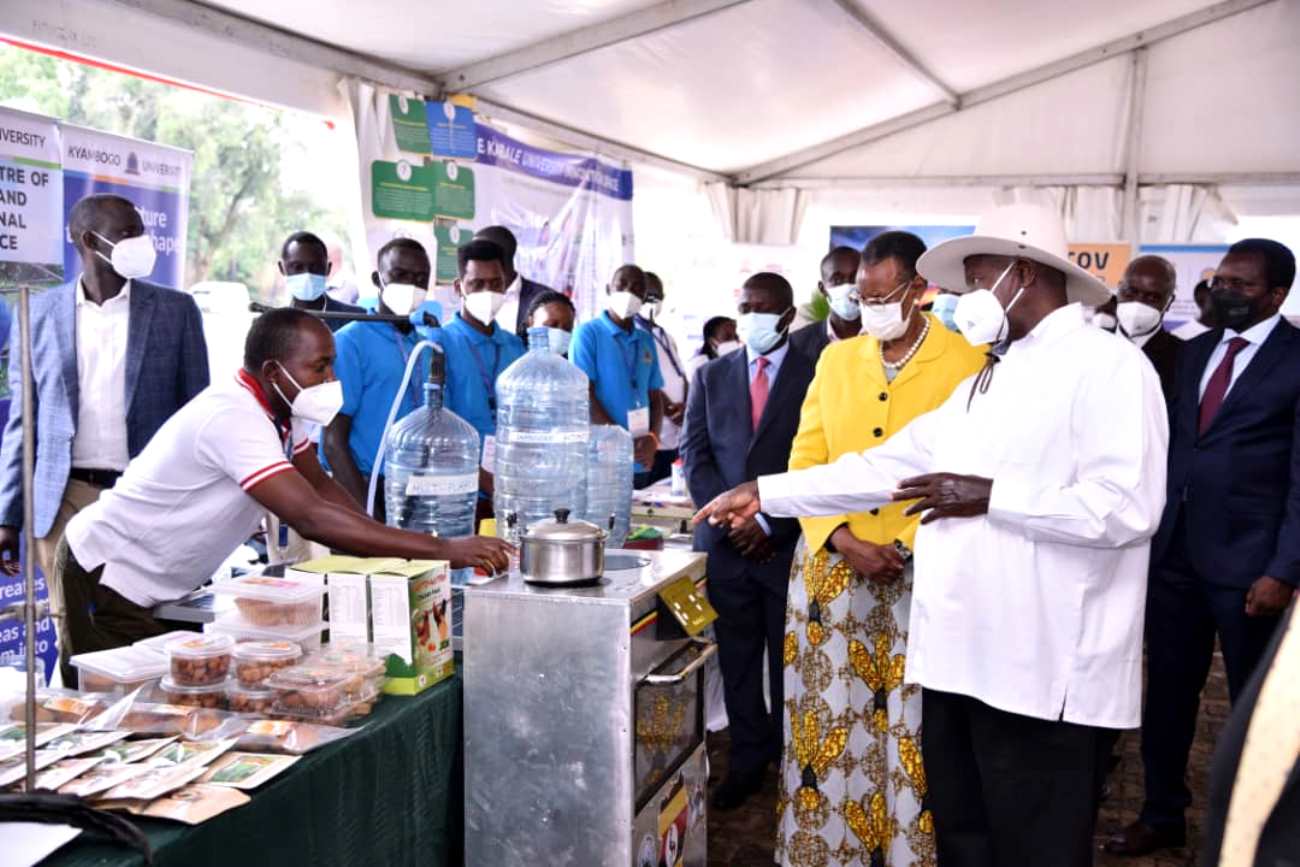
The National Council for Higher Education (NCHE) is pleased to inform the general public that the 6th Annual Higher Education Conference (2nd NCHE Regional Conference) will be held on 24th and 25th March 2025 in Mbarara City at Hotel Triangle.
NCHE hereby announces the call for papers for presentation at the conference. The successful submissions vetted through NCHE criteria will be published in the forthcoming edition of the Uganda Higher Education Review Journal, Volume 12, Issue 2, 2025. The journal holds ISSN 1813-2243 (inprint), 2958-5473 (electronic), and a DOI 10.58653.
Research areas of focus for Volume 12, Issue 2, 2025 include the following;
- Infrastructure, tools, and skills for Artificial Intelligence Integration in Higher Education Institutions.
- Revolutionizing Curriculum Design, Teaching, and Assessment through Artificial Intelligence in higher education.
- Policy and Regulatory Environment for Effective Artificial Intelligence Integration in Higher Education.
- Artificial Intelligence Adaptation in Higher Education.
Details of the call for papers may be found in Downloads below.
A copy of the Uganda Higher Education Review Journal, Volume 12, Issue 1 may be accessed at the link below
https://news.mak.ac.ug/2024/12/the-uganda-higher-education-review-vol-12-issue-1/
Deadline for abstract submissions is Friday, 10th January 2025.
General
Minister Janet Museveni Lays Foundation Stone for School of Graduate Studies Building, Commissions the School of Law Building and the renovated Lumumba Hall
Published
5 days agoon
December 18, 2024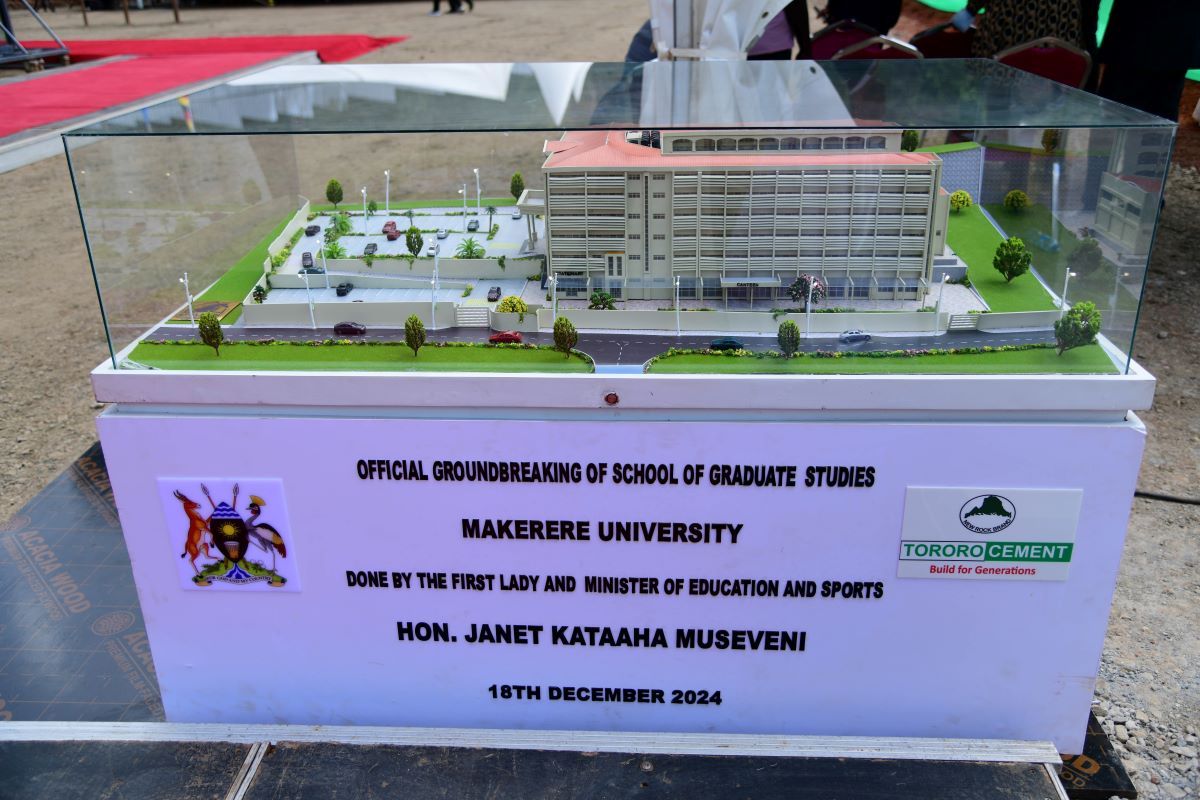
The First Lady and Minister of Education and Sports, Hon. Janet Kataaha Museveni, has laid the foundation stone for Makerere University’s School of Graduate Studies building, whose construction is now underway.
The Minister laid the foundation stone for the USD8 million project during a brief function held on Wednesday 18th December 2024 at the site opposite Makerere University’s Lumumba Hall. The event was attended by several dignitaries, including the State Minister for Primary Education, Hon. Joyce Moriku Kaducu, University Council Chairperson Mrs. Lorna Magara, and Makerere University Vice Chancellor, Professor Barnabas Nawangwe.
Others in attendance included Acting Deputy Vice Chancellor of Finance and Administration, Professor Henry Alinaitwe; Acting Deputy Vice Chancellor of Academic Affairs, Professor Buyinza Mukadasi; University Secretary Mr. Yusuf Kiranda; Dean of Students Winfred Kabumbuli; Guild President Vincent Lubega Nsamba; and the Vice Guild President, Joy Eve Serunjogi among others.
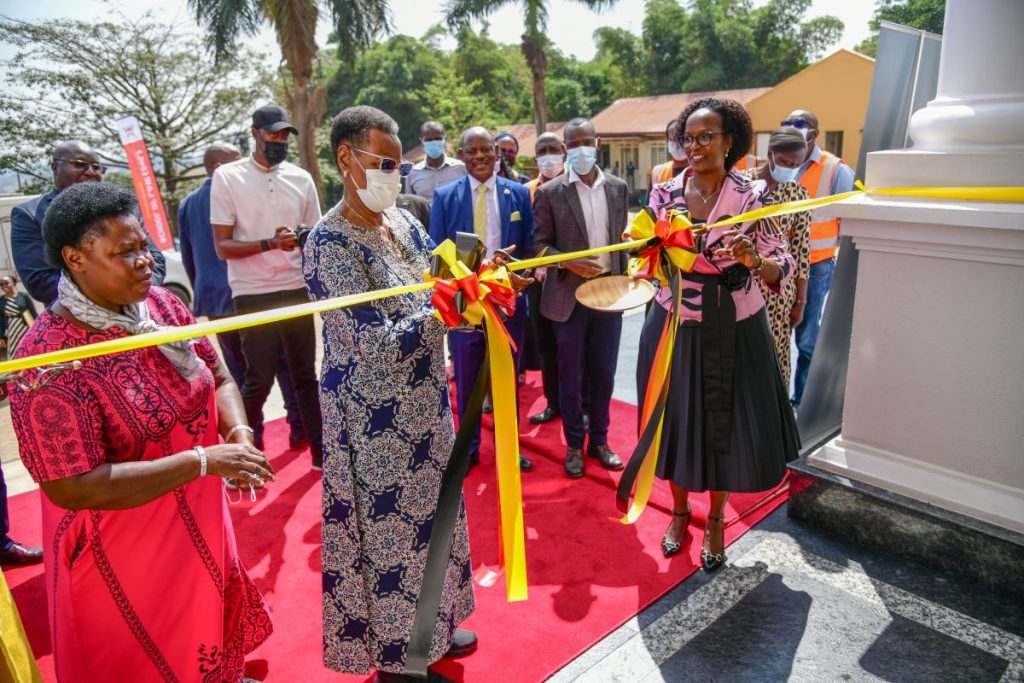
The building is a donation (in-kind) from the late Hasmukh Patel, an industrialist and former Chairman of Tororo Cement who passed away on August 29, 2024, after a short illness. The journey to this befitting donation to Makerere University started in December 2022, when Hasmukh Patel accompanied by some members of his family and friends visited the Vice Chancellor, Prof. Barnabas Nawangwe to declare his donation. From December 2022, a number of meetings were convened involving the Minister of Education and Sports, the University leadership, Mr. Hasmukh Patel, his family and Tororo Cement regarding this donation. Living true to his commitment during those meetings, his family and Tororo Cement are implementing his wishes to construct the building, which will house the School of Graduate Studies at Makerere University.
Before laying the foundation stone for the School of Graduate Studies building, Hon. Janet Museveni first unveiled a plaque to officially open the new building for the School of Law. She then headed to Lumumba Hall, where she unveiled another plaque marking the completion of its renovation.
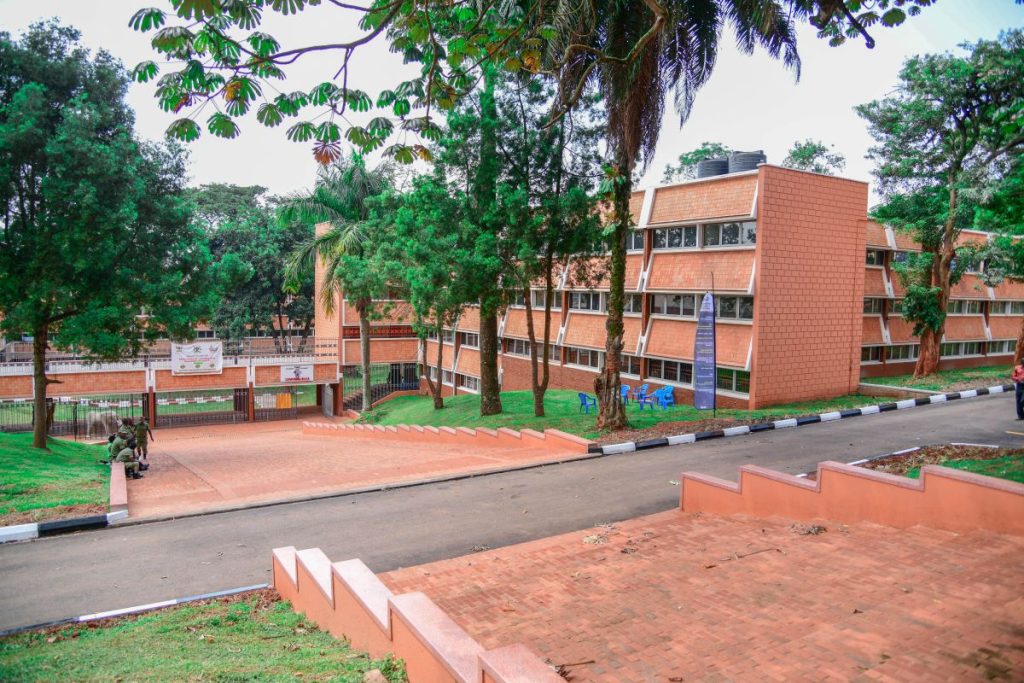
The First Lady, who had initially laid the foundation stone for the School of Law building on May 17, 2022, returned to the main campus to officially open the completed structure. Funded by the Government of Uganda to the tune of UGX 7.3 billion, the new three-storeyed building features lecture rooms, tutorial and seminar rooms, a library, a moot court, offices, a cafeteria, a lactation room, and other teaching and learning facilities. Construction was undertaken by M/S CK Associates, with Symbion serving as a consultant.
The renovation works for Lumumba Hall commenced in June 2023, with the site handed over to the contractor, National Enterprise Corporation (NEC). Funded by the Government of Uganda to the tune of UGX 9 billion, the project involved extensive renovations to restore Lumumba Hall to its original splendor. Lumumba Hall now accommodates about 725 students.
Lumumba Hall was the first hall of residence to undergo renovation, followed by Mary Stuart Hall, which has also been handed over to NEC for refurbishment. These renovations, which began last year, are a result of the Government of Uganda’s efforts to improve the nine (9) halls of residence at the main campus.
Speaking at the event, Hon. Janet Museveni thanked the University Council and management for their dedication to rebuilding the institution. She expressed confidence that the physical restoration efforts would also rebuild the character of young people.
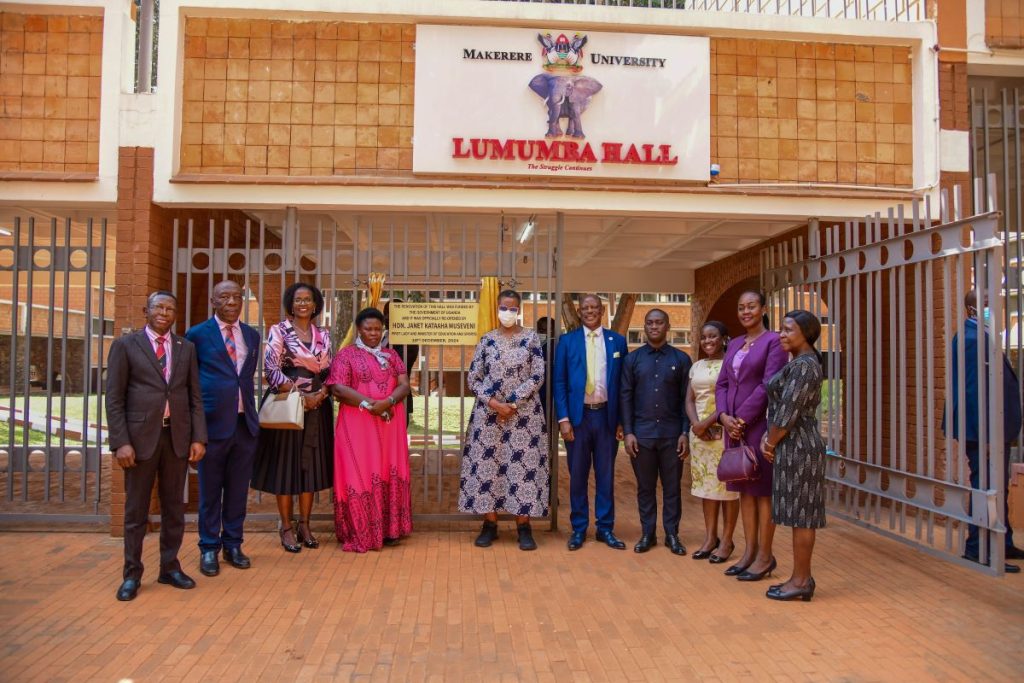
“There is a restoration of dignity that comes to an institution or a community when we choose to rebuild and it is not only physical, there is a spiritual restoration that comes as well. For Nehemiah, it was not just the rebuilding of a physical wall it was the rebuilding of broken lives and a broken covenant. It was the rolling away of the reproach they had suffered as a nation,” she said.
Adding; “I therefore salute the Council and the management of Makerere for your dedication to the rebuilding of this University. I am confident that as you rebuild physically, you are rebuilding the character of our young people. My prayer is that the physical restoration is translating into the spiritual restoration of this great institution.”
The first lady, Hon. Janet Museveni recalled her earlier visit to Makerere University, where she observed the dilapidated state of the halls of residence, which prompted her to initiate the renovation works.
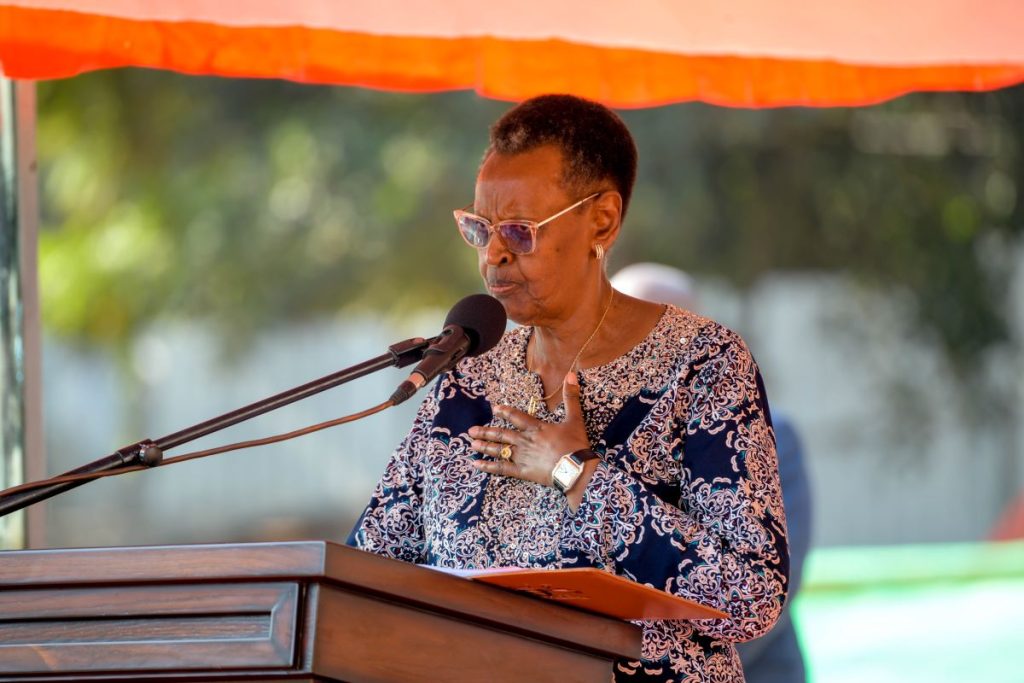
“I remember taking a tour of the halls of residence in this University and Kyambogo University in the thick of the COVID-19 pandemic. My heart bled when I saw the state of the halls of residence. Like Nehemiah, I took my burden to the Lord and now see what the Lord has done! Commissioning of the refurbished Lumumba Hall today is a testament to the faithfulness of our God. It is even more gratifying to know that other projects are ongoing and these include: the renovation of Mary Stuart Hall, the construction of the Perimeter Wall, and improvements at the University Hospital, including setting up an operating theatre and ICU.” She said.
Hon. Janet Museveni also expressed gratitude to the Vice Chancellor, Prof. Barnabas Nawangwe, for his leadership, which facilitated the realization of the Tororo Cement project. “This Project would not have been possible without the guidance and leadership of the Vice Chancellor of Makerere University, Prof. Nawangwe, who drew my attention to this offer by Tororo Cement, and requested me to endorse this Project, which will be named after Mr. Hamukh Patel,” she said.
Adding: “I am informed that the construction of this building is estimated to cost 8 Million US dollars and will consist of: lecture and seminar rooms, smart classrooms, laboratories, an innovation space, a conference hall, offices and other facilities. We remain forever grateful for this donation, which will increase access and contribute to improving the quality of postgraduate education.”
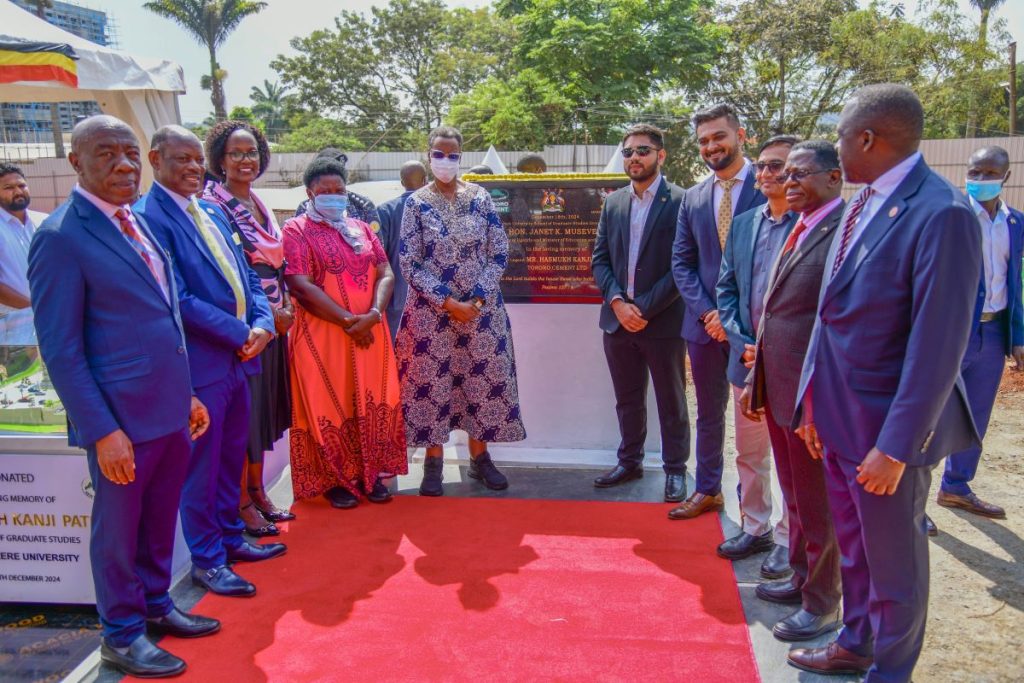
Speaking at the event, Vice Chancellor Prof. Nawangwe commended Hon. Janet Museveni for prioritizing the development of Makerere University, which has seen remarkable progress under her leadership. “Hon. Minister, from the time you took over the Office of Minister of Education and Sports and the Higher Education Sector, Makerere University in particular has transformed tremendously. Most notable is the infrastructure revolution at Makerere. On several occasions, you have come to Makerere to lay the foundations for new buildings and to open completed buildings, including our iconic Main Administration Building,” he said.
“When you inspected the halls of residence in 2021, I could see the frustration in your eyes, looking at the dilapidated state the halls were in, especially Lumumba, part of which had been condemned for 2 years,” Prof. Nawangwe said.
“Hon. Minister, I am sure that today, after seeing the glamorous new building for the School of Law and the glittering renovated Lumumba Hall, you are in a completely different mood compared to that visit in 2021. We are as delighted as you must be and your efforts are the reason for our happiness today. Our law students and professors can now comfortably study, work and conduct research in the best building for any school of law that I have seen,” Prof Nawangwe added.
Reflecting on the Graduate School Building, Prof. Nawangwe recalled when he received a proposal from Mr. Hasmukh Patel in 2022 who had initially intended to donate the Main Administration Building, which had been destroyed by fire, but opted to donate School of Graduate Studies Building after finding that the main building reconstruction had already started.
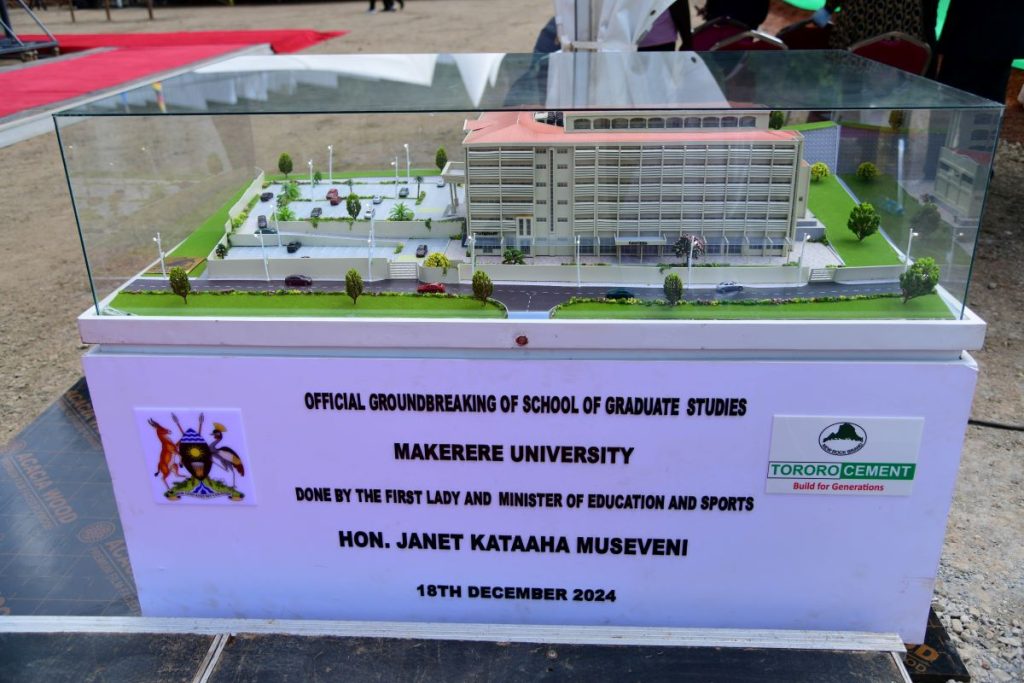
“Hon. Minister, in the morning of 13th December 2022, a miracle happened in my office in the Frank Kalimuzo Building. General David Muhoozi and Major General Apollo Gowa walked into my office with the Late Hasmukh Patel. Gen. Muhoozi introduced Mr. Hasmukh Patel as the Chairman of Tororo Cement, who after learning about the destruction by a fire of our Main Administration Building, expressed the wish to reconstruct that iconic building. On reaching Makerere, Mr. Hasmukh Patel found a contractor already on site, and he told us, that he would all the same donate a building to Makerere University as a gift on our 100th anniversary,” Prof Nawangwe said.
“He said it in such a simple way, that I thought I was dreaming. That evening, at the invitation of Mr. Patel, I visited the building that Mr. Patel had built for a school at Bukoto and I told him that a similar building for Makerere would be just what we needed for our School of Graduate Studies and Research that we needed. The University Council unanimously voted to thank Mr. Patel for his magnanimous offer and, you, Maama Janet graciously endorsed the project. I later visited Mr. Patel in Mombasa and was amazed at the humanitarian work he was doing among the communities. He was such a rare human being,” Professor revealed.
“Today we are here to witness the laying of the foundation stone for this, the largest academic building at Makerere University, and the first such donation I know by an African philanthropist to a university in Africa. The building will have lecture and seminar rooms, a conference hall, innovation spaces, PhD student rooms, computer and other laboratories, a restaurant, staff offices and other facilities. I thank Tororo Cement and the family of the Late Hasmukh Patel for honoring his wish and I wish to assure Mr. Patel, who must be in heaven smiling at us, that we will honor his legacy in this building and that we will put the building to its best use in the service of humanity, which is what Mr. Patel lived for,” Prof Nawangwe added.
On her part, the state Minister for Primary Education, Honorable Joyce Moriku Kaducu acknowledged Hon. Janet Museveni for prioritizing the Education sector in her leadership, which has led to the tremendously development of the sector.
“On behalf of the education sector, we want to thank you as the mother of the nation, indeed you are a big gift and a blessing to the nation and education at large, all this achievement would not have been possible if it was not under your visionary leadership and the guidance you have offered,” Minister Kaducu said.
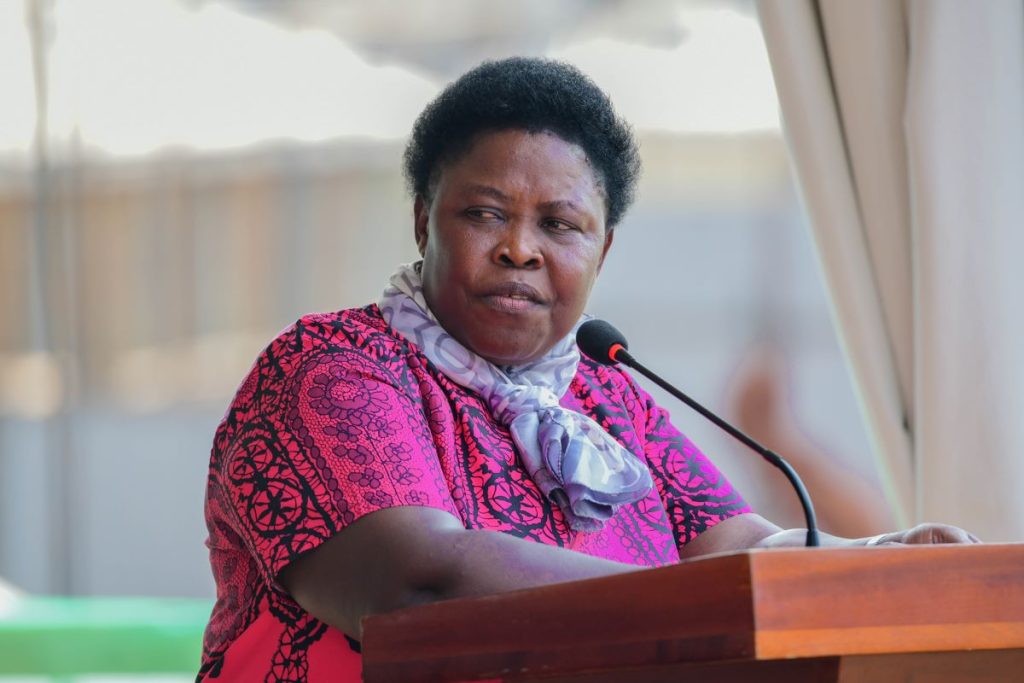
Hon. Kaducu also hailed Makerere University for playing a very critical role in sensitizing, disseminating knowledge, and raising awareness to the public on the message of the Parish Development Model, which is intended to create wealth among citizens.
“As President Museveni is preaching the message of wealth creation, I want in a special way to thank Makerere University for playing a very critical role in sensitizing, disseminating knowledge, and raising awareness to the public on the message of the Parish Development Model (PDM), and they have a committee that monitors and informs government. They are indeed part of the team promoting wealth creation in this country,” she said.
Mrs. Lorna Magara, the Chairperson of the Makerere University Council said that the construction of the Graduate studies building speaks to the University’s mission of being a research-led institution because it comes as a dedicated building to house the Directorate of Research and Graduate Training, which marks the resolution of a critical gap in our institutional framework
“At the heart of Makerere University’s current strategy is the promotion of a research-led institution, with a strong focus on graduate training. The establishment of a dedicated facility for the School of Graduate Studies, which also houses the Directorate of Research and Graduate Training, marks the resolution of a critical gap in our institutional framework. The late Patel’s timely and generous contribution will undoubtedly advance graduate training and research for generations to come. We extend our heartfelt gratitude for your exceptional support,” she said.
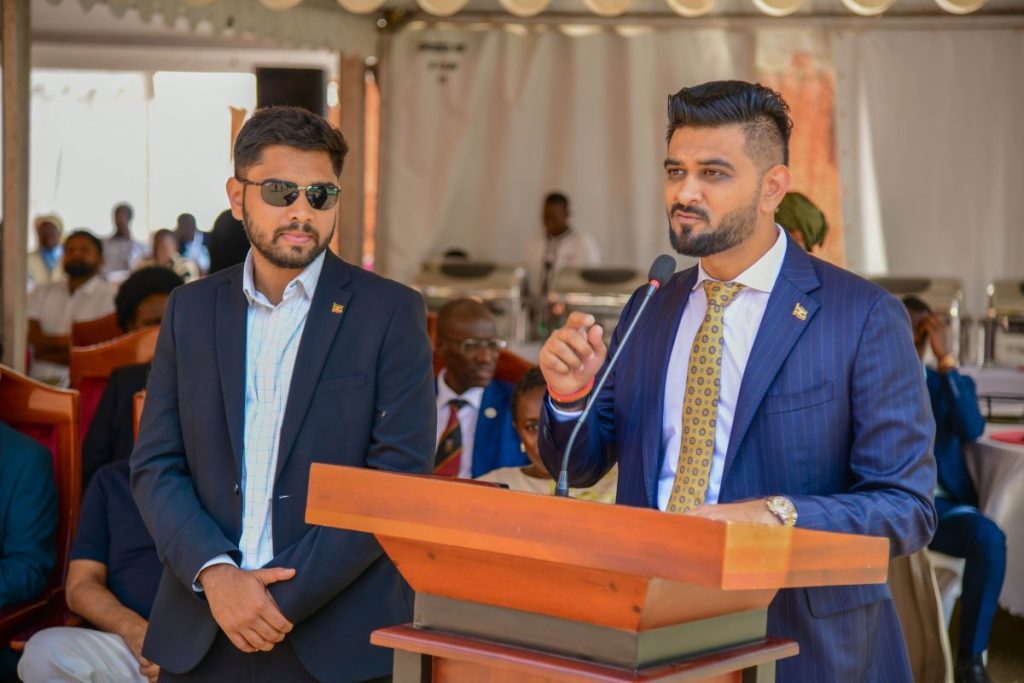
Mr. Manish Varsani who represented the Patel family took the first lady through how Mr. Hasmukh Patel started the idea of donating the building to Makerere. He explained that, Mr. Patel intended to present a gift that was coming from the bottom of his heart, and he teamed up with General Muhoozi who led him to Prof. Nawangwe’s office.
He also recalled when Mr. Patel met H.E President Yoweri Kaguta Museveni Museveni in Bukoto where he (Patel) had donated a building to a school and told the President that he would want to donate the same building to Makerere University as a gift to the First Lady Janet Museveni because he loved her so much, and in response, the President said he would take the message back to the First Lady.
The Guild President Lubega Vincent Nsamba asked the First Lady to consider constructing another hall of residence for the female students to solve what he described as an accommodation imbalance.
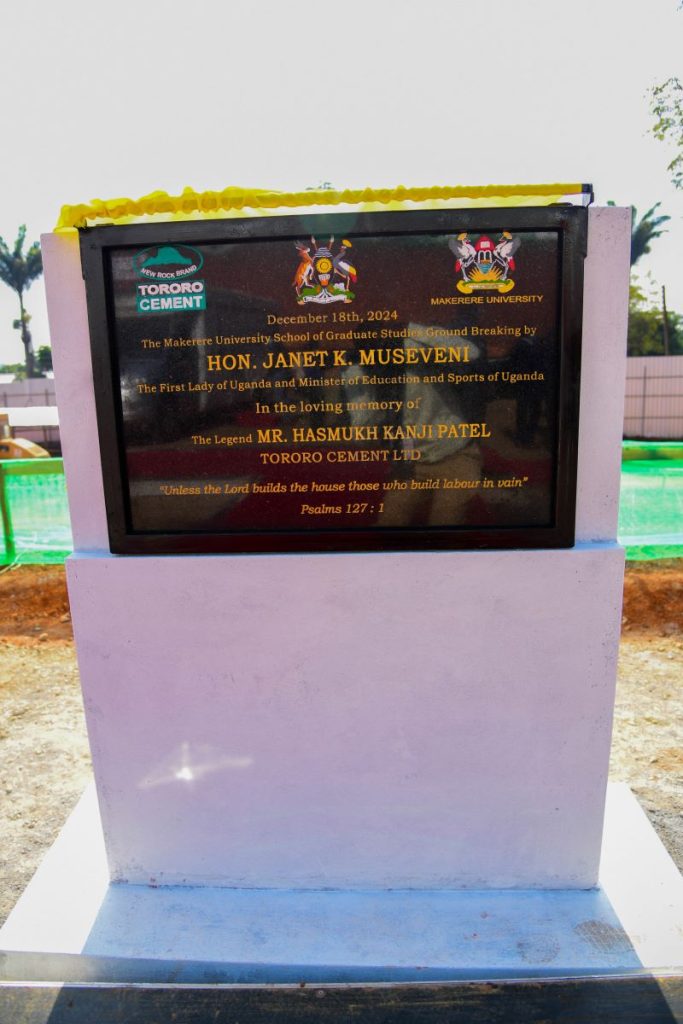
“Maama Janet Museveni, allow me to report to you that we still have only three halls of residence gazetted for female students against the six halls of residence gazetted for male students. These halls of residences were built back in colonial and independent times when the female students were fewer compared to their male counterparts, and to me Maama, this accommodation imbalance is something that should be addressed,” he stated.
“To me Maama, this speaks to the sense of how there is a dire need to invest in another additional hall of residence for the girl child here at Makerere University, and Maama, without any fear of contradiction, we humbly request that you consider building an additional hall of residence named after you in recognition of the contribution and honor of the service you have made for this country as a mother and as an educator,” he said.
General
Call for applications: Graduate Fellow (Fashion Design)
Published
6 days agoon
December 18, 2024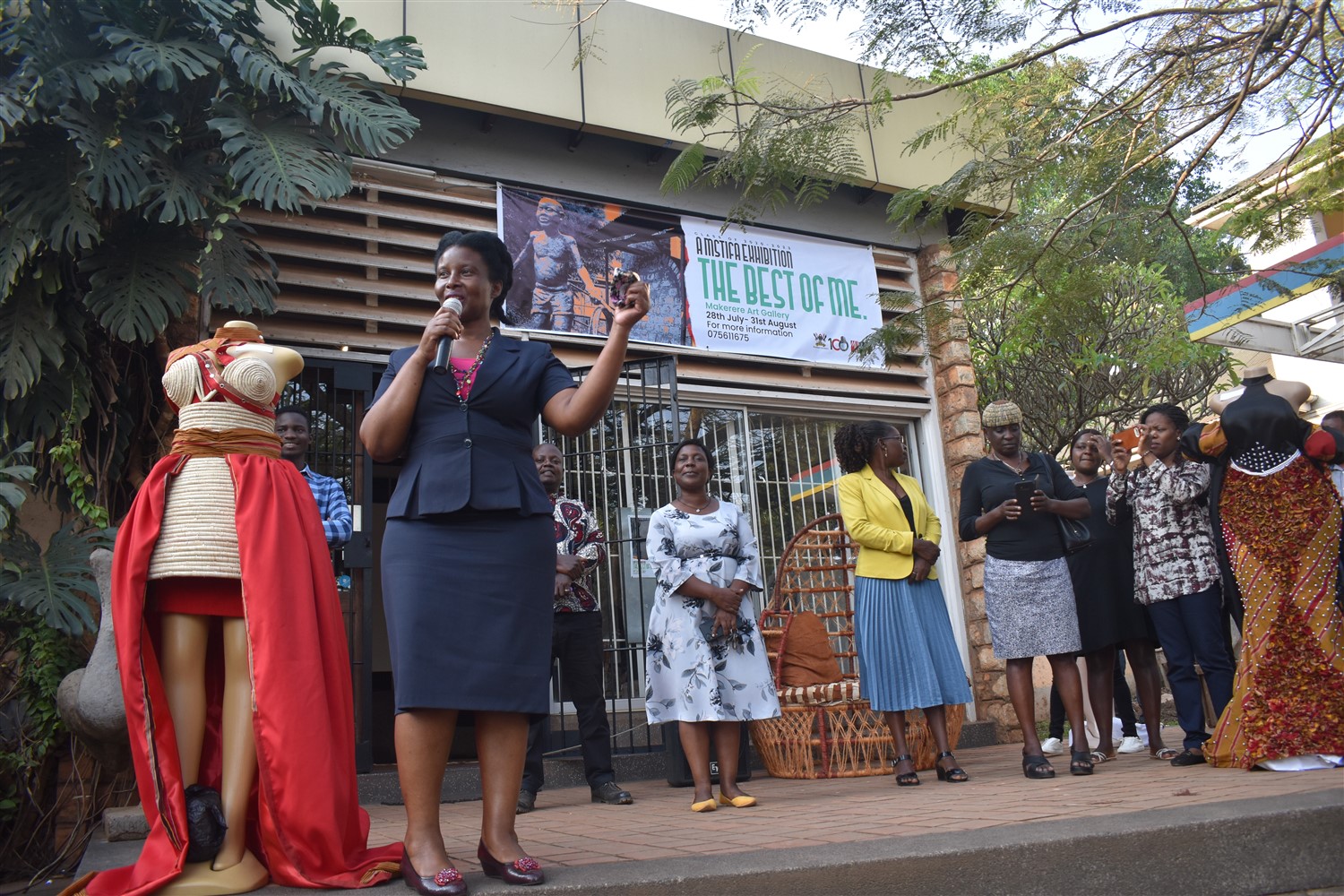
DEPARTMENT OF INDUSTRIAL ART AND APPLIED DESIGN
COLLEGE OF ENGINEERING, DESIGN ART AND TECHNOLOGY (CEDAT)
MAKERERE UNIVERSITY
Interested in growing your fashion knowledge beyond the known? Eager to join a team of research experts, and together drive fashion innovation to greater heights? The Department of Industrial Art and Applied Design is searching for a Graduate Fellow in Fashion Design studies to join its teaching and research team, and contribute towards advancements within the popular and fast changing creative sector.
Position Overview:
As a Graduate Fellow in Fashion Design, you’ll take up an essential role in the teaching and research support at the unit, collaborating with all complementary discipline experts and researchers. Your duties and responsibilities will Include the following:
- Assist in preparation of teaching materials, interact directly with students in the studios; conduct practical and tutorial sessions
- Assist in setting, marking and grading of assignments, tests and examinations
- Supporting faculty members and students with designing and implementing Fashion design projects Including: Research, Production, Presentation and Publication
- Collaborating with Industry communities to develop sustainable synergies.
Trending
-
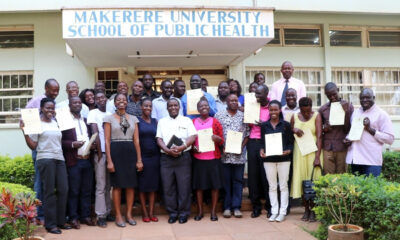
 Health6 days ago
Health6 days agoCertificate in Water, Sanitation and Hygiene 2025
-
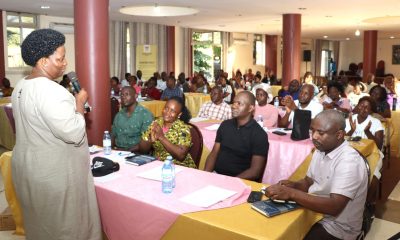
 Humanities & Social Sciences2 weeks ago
Humanities & Social Sciences2 weeks agoInaugural CHUSS Non-Academic Staff Retreat Highlights Customer Care, Quality Services and Professionalism to Improve University Image
-
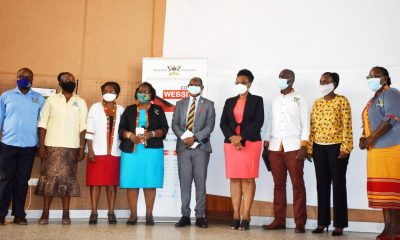
 Humanities & Social Sciences2 weeks ago
Humanities & Social Sciences2 weeks agoMakerere University’s KISH Initiative Makes Strides in Combating Sexual Harassment
-
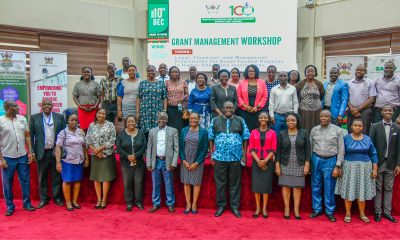
 General2 weeks ago
General2 weeks agoMakerere University Commended for strides in Grants Management
-
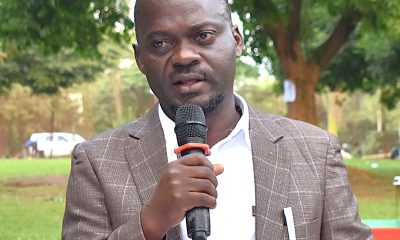
 Agriculture & Environment1 week ago
Agriculture & Environment1 week agoMak Welcomes CaReFoAfrica Project Sponsored Students
